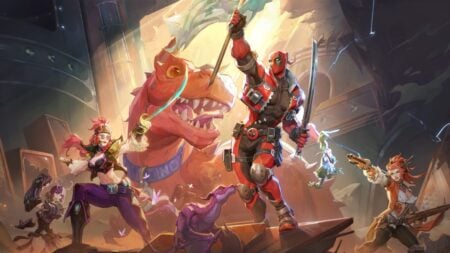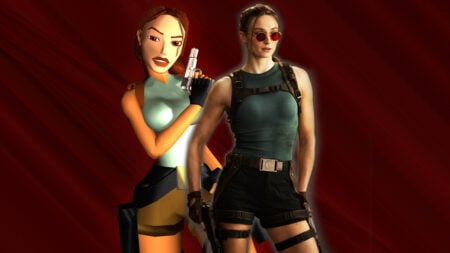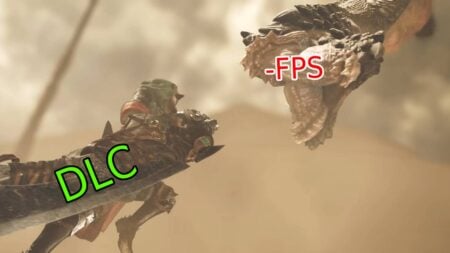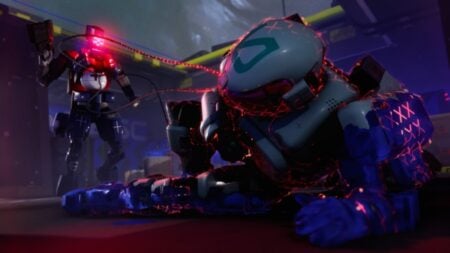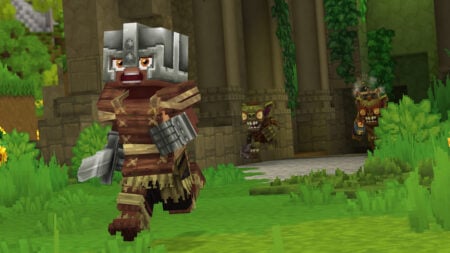Skip To...
Video games these days have gone and got soft. Back in my day, we had to restart from scratch after failing to rescue a gosh-darned princess — who turned out to be in another castle anyway. Thankfully, roguelike games are back in resurgence and are more popular than ever to remind the young ‘uns of the hard times. At least, that’s what the best roguelike games do.
Boomer jokes aside, roguelike games are pretty serious about their progression and demand attention and mastery from the players. Failure means death without saves — sometimes permadeath — and that also means starting over again. Sounds awful, but the best roguelike games, like the ones below, can make it a fun challenge.
Hades
Roguelike games are no doubt intimidating for beginners and those who want to try them out. But games like Hades provide a rather significant transition or bridge between the casual and the hardcore. It’s one of the most forgiving roguelike games in the genre.
Hades places a more interactive and heavier emphasis on its story, where it’s cleverly woven into the roguelike template. Each death unlocks a story bit, which keeps you coming back and invested in the epic Greek God drama. You get to play Hades’ son Zagreus as he impetuously tries to break free from the Underworld out of curiosity and boredom.
Risk of Rain 2
Risk of Rain 2, in many ways, is a refinement over the 2D original and this bullet hell game leverages its new 3D environment in a way the predecessor can’t. There’s more freedom of movement in Risk of Rain 2 as you guide your survivor astronaut on an alien planet.
The lore sounds barebones, but there’s actually a story underneath all the snazzy gun particles to reward your efforts in finding out the purpose of your plight. In a way, it’s a lovely struggle against overwhelming adversity act, much like the best roguelike games. While you’re at it, you can also try out the original and its remaster, Risk of Rain Returns.
Dead Cells
Dead Cells is right up there in many peoples’ considerations for the best roguelike game. It’s also a Metroidvania with a tie-in to Castlevania. Unlike most roguelike games, Dead Cells is quite approachable with a low entry bar (though the skill ceiling is still high) since the basics are easy to grasp.
There’s also an easy mode in this fantasy roguelike to make it even more appealing to the casual crowd. As for its story, it’s mostly just an excuse to go out and kill the bosses and gather new weapons. Your character wakes up as a prisoner who apparently cannot die and keeps resurrecting — now go find shiny loot and try not to get decapitated!
The Binding of Isaac
The cutesy art style is a trap, by the way. The Binding of Isaac is one of the most brutal roguelike experiences ever, and you might often find yourself close to tearing your hair out with each failure. Part of the reason why The Binding of Isaac is hard is thanks to its randomly generated maps.
This is the roguelike game that a large number of people refer to when they say they find the genre too hard. You can’t just waltz in and expect victory without experience; game knowledge, for that matter, is your best asset here, and that goes with experience. The story is a twist on the biblical tale of Isaac, who flees to a monster-filled basement to avoid being sacrificed to God. Talk about being stuck between a rock and a hard place, eh?
FTL: Faster Than Light
FTL: Faster Than Light offers a simple premise, much like The Binding of Isaac and other roguelike games. You’re stuck aboard a spacecraft and must reach a Federation fleet while being pursued by rebels. You try your best to keep the ship running because it’s a lot more preferable to death by implosion in the void of space.
Alas, much like The Binding of Isaac, FTL: Faster Than Light is also notoriously difficult with frequent and often random difficulty spikes. Some players even consider its difficulty as borderline unfair. But that’s simply one of the realities of playing a roguelike game.
Enter the Gungeon
Some of the best roguelike games ever tend to lighten the mood with their humor and wackiness to hide how nerve-racking they are. Enter the Gungeon is a great example here. At its core, it’s a bullet-hell top-down shooter.
It’s also a dungeon-crawling game where the main draw of progression is to see just how absurd your guns can get. To add to that chaos, the bosses and enemy encounters will surprise you with just how hectic the gameplay can get. There are guns that shoot lasers, guns that shoot blades, and even bullets that shoot guns to change things up.
Darkest Dungeon
In Darkest Dungeon, progress involves improving your manor by sending your party of heroes to, well — you guessed it! — dark dungeons. However, the permadeath elements here are cruel and, at times, malicious. Pretty soon, you’ll realize that the dungeons in the game are meat grinders where you send your heroes in, and treasure comes out, along with your heroes’ guts and crushed hopes and dreams.
To that end, Darkest Dungeon is a game about making the most out of terrible situations. Your heroes are prone to stress breakdowns where they can become insane, suicidal, or worse, hopeless defeatists that bring down the whole party. It’s best to not get too attached to your heroes. You can level them up and equip them with the best gear, and they’ll still probably die… permanently.
Slay the Spire
Here’s a unique twist on the roguelike genre. Slay the Spire is a deck-building roguelike game that also plays like a collectible card game. The developers have taken the best of both genres and fused them together in a unique title that so far hasn’t been imitated successfully.
Your cards and your deck act more like spells or attack moves for your characters as they ascend the eponymous Spire to face otherworldly enemies. Each attempt in journeying up the Spire is also randomly generated, adding to the difficulty of the roguelike element.
Spelunky 2
The original Spelunky is an old roguelike game and is also one of the most imaginative trendsetters. Spelunky 2 continues its predecessor’s legacy, where you play as a spelunker, looking for treasure in the abyss and crevices while dodging enemies and other creatures of the deep.
It’s also a platformer game, and as you’re well aware, platformers and roguelikes are a deadly mix. All it takes is one wrong jump. The game is hard but fair. Even some franchise veterans swear that the sequel is more difficult than the original. Thankfully, the charming visuals and the smooth gameplay can ease the pain.
NetHack
Nethack is one of the oldest roguelike games in the genre and dates back to 1987. It remains relevant to this day since it’s also an open-source game that the community can modify and even overhaul. In Nethack, the goal is to give the Amulet of Yendor to your in-game god simply because they want it for… reasons. To achieve this, you have to platform your way across the game’s perilous 2D environment.
Related:
Best Dark Souls Games, RankedThe plot was made as simple as possible to accommodate a lot of features and add replay value. Interestingly enough, NetHack was based on the 1982 game Hack, which itself was also based on the 1980 game Rogue — the original roguelike title. There’s nothing like an OG roguelike to remind you of life’s fleeting mortality.












